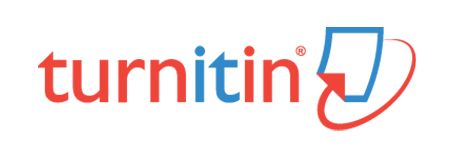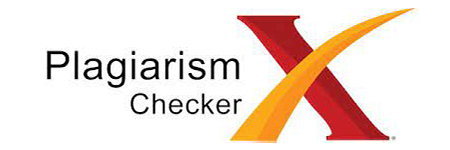Elementary School Mathematics Learning Strategies: An Empirical Study Analysis
DOI:
https://doi.org/10.71094/logika.v1i1.174Keywords:
Learning Strategy, Elementary School Mathematics, Empirical Study, Learning InnovationAbstract
This study aims to analyze various mathematics learning strategies in elementary schools that have been developed and empirically tested over the past five years, to provide a comprehensive overview of their trends, effectiveness, and relevance to 21st-century learning needs. This is due to the low mathematical literacy achievements of Indonesian students in PISA, TIMSS, and the National Assessment, which indicates that the dominance of conventional teacher-centered methods remains an obstacle in developing critical thinking, creativity, and problem-solving skills. The research method used was a Systematic Literature Review (SLR) with reference to the PRISMA guidelines. The search process was conducted in the Google Scholar database with specific keywords and focused on articles indexed SINTA 1-5, published between 2020-2025, and containing empirical data in the context of elementary mathematics learning. Of the 1,600 identified articles, five articles were screened that met the inclusion criteria and were further analyzed. The results showed that innovative learning strategies consistently improve learning outcomes, motivation, and higher-order thinking skills. The traditional game-based GASING method has been proven to increase motivation and conceptual understanding, the TGT model assisted by Articulate Storyline strengthens student interest and engagement, the integration of ethnomathematics with Augmented Reality encourages problem-solving and critical thinking skills, the environment-based STAD connects mathematics with real contexts, while PBL assisted by manipulative media deepens the understanding of abstract concepts. Therefore, it can be concluded that innovative, contextual, collaborative, and technology-based mathematics learning strategies are the answer to the numeracy achievement gap in elementary schools. The combination of concrete and digital media, integration of local contexts, and collaboration-based learning has the potential to reduce the achievement gap between students while improving the quality of elementary mathematics education in Indonesia
References
Ayada, IM, & Tegeh, IM (2023). Environmentally Based STAD Type Cooperative Learning Model Improves Mathematics Learning Outcomes. Elementary School Science Journal , 7 (4), 722–729. https://doi.org/10.23887/jisd.v7i4.60873
Barokah, N., & Mahmudah, U. (2025). Transforming Elementary School Mathematics Learning Through Deep Learning: Strategies to Improve Motivation and Achievement. Numbers: Scientific Journal of Mathematics, Earth and Space , 3 (3), 48–61. https://doi.org/10.62383/bilangan.v3i3.521
Dewanti, SS, Rahmawati, & Sumardi. (2024). Problem-Based Learning with Manipulative Media: Enhancing Elementary Students' Conceptual Understanding in Area and Volume. Elementary School Scientific Journal , 8 (3), 487–499. https://doi.org/10.23887/jisd.v8i3.80221
Dores, OJ, Wibowo, DC, & Susanti, S. (2020). Analysis of Students' Critical Thinking Skills in Mathematics. Scaffolding: Journal of Islamic Education and Multiculturalism , 2 (2), 321–332. https://doi.org/10.37680/scaffolding.v4i1.1331
Hidayati, N., Mulyasari, E., Hendriawan, D., & Nuryani, RF (2025). 21st Century Mathematics Curriculum in Elementary Education: A Systematic Literature Review of Critical Thinking and Creativity Skills. Kalam Cendekia: Scientific Journal of Education , 13 (02), 788–801.
Jampel, IN, & Antara, IGWS (2025). Ethnomathematics-Collaborative Augmented Reality: An Innovative Framework to Enhance Problem-Solving Skills in Elementary Geometry. Elementary School Science Journal , 8 (3), 522–528. https://doi.org/10.23887/jisd.v8i3.85666
Jannah, R., Soraya, RA, Suriansyah, A., & Cinantya, C. (2024). Critical Thinking Skills in Mathematics Learning on Learning Outcomes in Elementary Schools. MARAS: Multidisciplinary Research Journal , 2 (4), 1991–1998. https://doi.org/10.60126/maras.v2i4.550
Kharismayanda, M., Ketaren, MA, Rahmawati, S., Nabilla, Rahmadani, PS, Fadhilah, NA, & Wenni, S. (2025). Effective Strategies in Improving Elementary School Students' Understanding of Basic Mathematical Concepts. Indonesian Journal of Educational Science Research , 2 (2023), 1080–1085. https://jpion.org/index.php/jpi1080Journal Website: https://jpion.org/index.php/jpi
Kurnia, L., & Edwar, A. (2025). Innovation in 21st Century Mathematics Learning Models: A Literature Review. Pendas: Scientific Journal of Elementary Education , 10 (02), 58–66. https://doi.org/https://doi.org/10.23969/jp.v10i02.26910
Ladisya, N., Adillah, A., Putri, GI, Lathifa, K., Wulandari, L., Antosa, Z., & Sandy, R. (2025). Implementation of Project-Based Learning to Improve Mathematics Learning Outcomes on Cube Volume. Jurnal Kiprah Pendidikan , 4 (3), 225–231. https://doi.org/https://doi.org/10.33578/kpd.v4i3.p225-231
Mangundap, JM, Koten, MS, Walewangko, SA, Patrisia, H., & Bulalong, RR (2025). The Effectiveness of Realistic Mathematics Education (RME) in Improving Motivation and Learning Outcomes of Second Grade Elementary School Students. MARAS: Multidisciplinary Research Journal , 3 (3), 940–950. https://doi.org/10.60126/maras.v3i3.1131
Muhdantiar, W., & Kasriman. (2025). The Effect of the PBL Learning Model Assisted by Phet Media in Mathematics Learning on Student Learning Outcomes. Mathematic Education Journal , 13 (1), 183–196. http://journal.ipts.ac.id/index.php/MathEdu/article/view/3103
Pasaribu, F., Ammy, PM, Nasution, S., & Halomoan, T. (2025). Implementation of Problem-Based Learning Model to Improve Students' Understanding of Mathematical Concepts. JMES (Jurnal Mathematics Education Sigma) , 6 (1), 54–60. https://jurnal.umsu.ac.id/index.php/jmes/article/view/19760
Purwoko, RY (2025). In-depth learning oriented towards improving elementary school students' numeracy skills. Jurnal Pendidikan Surya Edukasi (JPSE) , 11 (1), 13–26. https://doi.org/https://doi.org/10.37729/jpse.v11i1.6479
Putri, DS, & Sundi, VH (2025). The Effect of the Gasing Mathematics Method (Easy, Fun, and Enjoyable) on the Understanding of Mathematical Concepts of Fourth Grade Elementary School Students. Pendas: Scientific Journal of Elementary Education , 10 (2), 146–157. https://doi.org/https://doi.org/10.23969/jp.v10i02.24287
Rahmiyati, Hamsiah, A., & Rahmaniah, R. (2025). The Effectiveness of the Discovery Learning Model in Improving the Interest and Learning Outcomes of Fifth Grade Students at SD Inpres Tello Baru I/2 Makassar. Bosowa Journal of Education , 5 (2), 229–234. https://doi.org/10.35965/bje.v5i2.5308
Saputra, H. (2024). The Development of Mathematical Thinking in Elementary School Children. JEMARI: Journal of Elementary School Education , 6 (2), 53–64.
Sariningsih, KR, Parmiti, DP, & Yudiana, IKE (2025). The Gasing Method with the Traditional Game-Based Mong-Mongan Approach on the Mathematics Learning Outcomes of Third Grade Elementary School Students. Elementary School Science Journal , 9 (2), 400–407. https://doi.org/10.23887/jisd.v9i2.96608
Sekarsari, EP, & Rusnilawati, R. (2023). The Effect of Team Games Tournament Model-Assisted Articulate Storyline Media on Improving Outcomes and Interest in Learning Javanese Script Material in Elementary School. Elementary School Pulpit , 10 (1), 281–296. https://doi.org/10.53400/mimbar-sd.v10i1.55262
Sihombing, E., Widiyarti, G., & Daliani, M. (2025). The Effect of the Gasing Method on Mathematics Learning Outcomes of Fifth Grade Students of Elementary School 066044 Helvetia, Academic Year 2024/2025. Education, Science, Social and Law , 4 , 1–7.
Situmorang, RG, Sirait, AP, Mailani, E., Winara, & Siregar, WM (2024). The Effect of the Gasing Mathematics Learning Method on Student Learning Outcomes in Addition Material in Grade II of Elementary School. Journal of Elementary School Innovation , 1 (5), 1–5.
Veronika, S., & Liliana, S. (2025). Analysis of the Role of Technology in Mathematics Learning Based on Teacher and Student Perspectives. Jurnal Cendekia: Journal of Mathematics Education , 9 (2), 976–985. https://doi.org/10.31004/cendekia.v9i2.4156
Widad, HD, & Hadi, MS (2025). Realistic Mathematics Education, Problem-Solving Ability, and Mathematics Learning in Elementary Schools. JIIP - Scientific Journal of Educational Sciences , 8 (2), 2309–2315. https://doi.org/10.54371/jiip.v8i2.7146
Witono, S., & Hadi, MS (2025). Numeracy and Creative Thinking Skills in Mathematics Learning in Elementary Schools. JIIP - Scientific Journal of Educational Sciences , 8 (3), 2489–2496. https://doi.org/10.54371/jiip.v8i3.7180
Downloads
Published
Issue
Section
License
Copyright (c) 2025 Rahayu Fitriani, Juliana Artatib, Haeruddin Azhari (Author)

This work is licensed under a Creative Commons Attribution-ShareAlike 4.0 International License.










